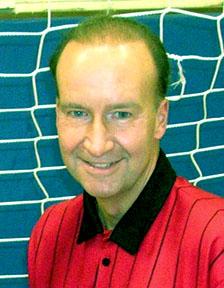
Unquestionably, I’ve made many mistakes officiating soccer games. If there were a list of soccer referees in the United States and the number of mistakes they had made, my name would be near the very top of the list. Yet a longtime coach recently said to me, “But the percentage of calls you make that are wrong is very low.”[show_to]
Could be and if that’s the case, it is because I learned from my mistakes.
The assessor comes to a game to rate the performance and give the officials helpful ideas. The ref needs to listen to what the assessor has to say, and it’s probably a very good idea to act on the advice as well. It would be great if we had more assessors in addition to more referees.
My first assessment was by
Jack McCabe, who came to watch a youth game that I was efereeing. Jack, who went on to become the chair of U.S. Soccer’s Referee Committee, had heard some good things about me so he watched one of my games and gave me some helpful ideas.
But I had been refereeing nearly five years (the first two in intramurals, the next three in travel team and amateur games) before Jack or anybody else assessed my ability.
Sadly, very few games are assessed by a person trained to do so as there are so many games and not nearly enough assessors. However, the officials are being assessed every game by players, coaches and spectators. The ref should not simply become defensive, but should listen to criticism they might have. If there are patterns of criticism developing, the ref should act on them.
In my first years of refereeing, I heard comments like “Ref, let us play,” “The teams are playing nicely, so could you call less fouls?” and “You meant well, but you interrupted play too much.” I learned to whistle fewer fouls while still maintaining control of the game, to everyone’s benefit. Jack McCabe and other assessors who followed were then able to refine my ability through their sage comments.
Although I am not a certified assessor, I will be asked on occasion to watch officials and help hem. Recently, I did that for a 16-year-old girl, with a couple of years experience as an assistant referee but who had never been in the middle before. Until she was assigned to referee a boys U-12 cup game with no assistant referees (as there are no ARs in that age group in this league). I knew the coaches, both very nice guys who are not too concerned with winning.
Some of her decisions were correct and some were not but the important thing is she tried, was making calls, was hustling and controlled the game as best she could.
There weren’t any discipline issues partly because of the coaches’ calm demeanor and good attitude that their players emulated. Her nervousness subsided as the game proceeded. Wouldn’t you know that the keepers played very well and this cup game was scoreless through regulation and overtime.
So we went to kicks from the mark, also called a shootout or penalty kicks (although no penalty has been committed). It was there that she was confused about the procedure and needed my guidance.
Let’s hope that she can accomplish half of what the last ref who I watched in his first outdoor game has been able to do. Back in 2001, I watched him and he had a natural ability plus made a very tough, but correct decision, that experienced officials often miss.
The type of play that you might see once a year in which the keeper is well off the goal line, one defender is on the goal line and the ball is played to an attacker in the goal area who scores. The problem is that the keeper was off his line so the attacker needed another defender closer to the goal line than him.
I told the ref it was a great decision when he whistled offside to disallow the goal and a wonderful start to a career.
Brian Dunn is now an assistant referee in MLS games and was honored in 2011 as the Referee of the Year in both Eastern New York and the New York Metro NISOA chapter.
[/show_to][hide_from accesslevel=’Subscriber’]
Your subscription has expired please
Subscribe to Southern Soccer Scene to view full article and get all the news in your mailbox![/hide_from]
